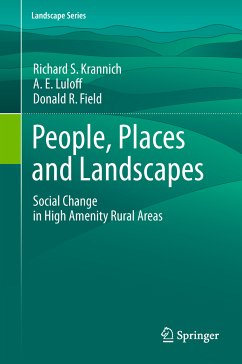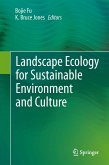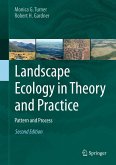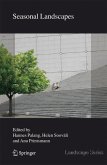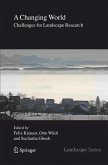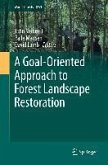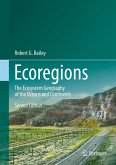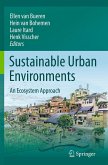The tight geographical focus of this valuable resource ensures a depth of analysis which can be applied to similar regions worldwide. Based on a large-scale, random-sample survey of both full-time and seasonal residents, it provides a much-needed overview of the macro-level economic, demographic, and social transformations affecting rural communities in America. As such, the book has relevance for all researchers concerned with rural development, the changes impacting rural landscapes, and natural resource management.
Dieser Download kann aus rechtlichen Gründen nur mit Rechnungsadresse in A, B, BG, CY, CZ, D, DK, EW, E, FIN, F, GR, HR, H, IRL, I, LT, L, LR, M, NL, PL, P, R, S, SLO, SK ausgeliefert werden.
"The book will be of interest to scholars and practitioners concerned with rural and regional change and development. ... This book is highly recommended to academic researchers, as well as citizens and their decision-makers, planners, and managers struggling with amenity-led sociocultural, economic, and biophysical transformations of rural communities and their natural ecologies." (Laurence A. G. Moss, Mountain Research and Development, Vol. 34 (1), February, 2014)
"This book represents a career-long collaboration among Krannich (sociology, Utah State Univ.), Luloff (rural sociology, Penn State), and Field (forest and wildlife ecology, Univ. of Wisconsin-Madison). They bring together a range of methods and levels of analysis; subregional and community data are nested in regional-level changes. ... it is an exemplary regional study and makes important contributions to rural sociology, planning, and environmental policy. Summing Up: Recommended. Graduate level and beyond." (A. C. S. Swords, Choice, Vol. 49 (5), January, 2012)

